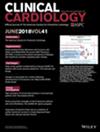Exercise-Based Cardiac Rehabilitation for Patients After Heart Valve Surgery: A Systematic Review and Re-Evaluation With Evidence Mapping Study
Abstract
Objective
This systematic review and evidence mapping study aims to assess the effects of exercise-based cardiac rehabilitation on clinical outcomes in patients after heart valve surgery. By consolidating and visualizing existing evidence, the study seeks to identify gaps in knowledge, evaluate the quality and breadth of current research, and provide guidance for clinical practice and future research. The evidence mapping will highlight under-researched areas and inform healthcare providers on effective strategies to enhance postoperative recovery.
Methods
A comprehensive search was performed across multiple databases, including PubMed, Embase, Cochrane CENTRAL, Web of Science, CNKI, and Wanfang, up to May 2024. Two reviewers independently screened the articles, extracted relevant data, and assessed study quality. Study characteristics and outcomes were visualized using bubble plots.
Results
Ten systematic reviews/meta-analyses met the inclusion criteria. Based on AMSTAR-2, two were rated “high quality,” two “low quality,” and six “very low quality.” Using the GRADE system, of the 48 pieces of evidence across 10 outcomes, 1 was “high quality,” 8 “moderate,” 19 “low,” and 20 “very low.”
Conclusion
Current evidence indicates that exercise-based cardiac rehabilitation can enhance physical capacity, left ventricular ejection fraction, peak oxygen uptake, and daily living activities in heart valve surgery patients. However, more large-scale, high-quality studies are needed to verify its effects on all-cause mortality, quality of life, adverse events, return to work, and emotional health.


 求助内容:
求助内容: 应助结果提醒方式:
应助结果提醒方式:


